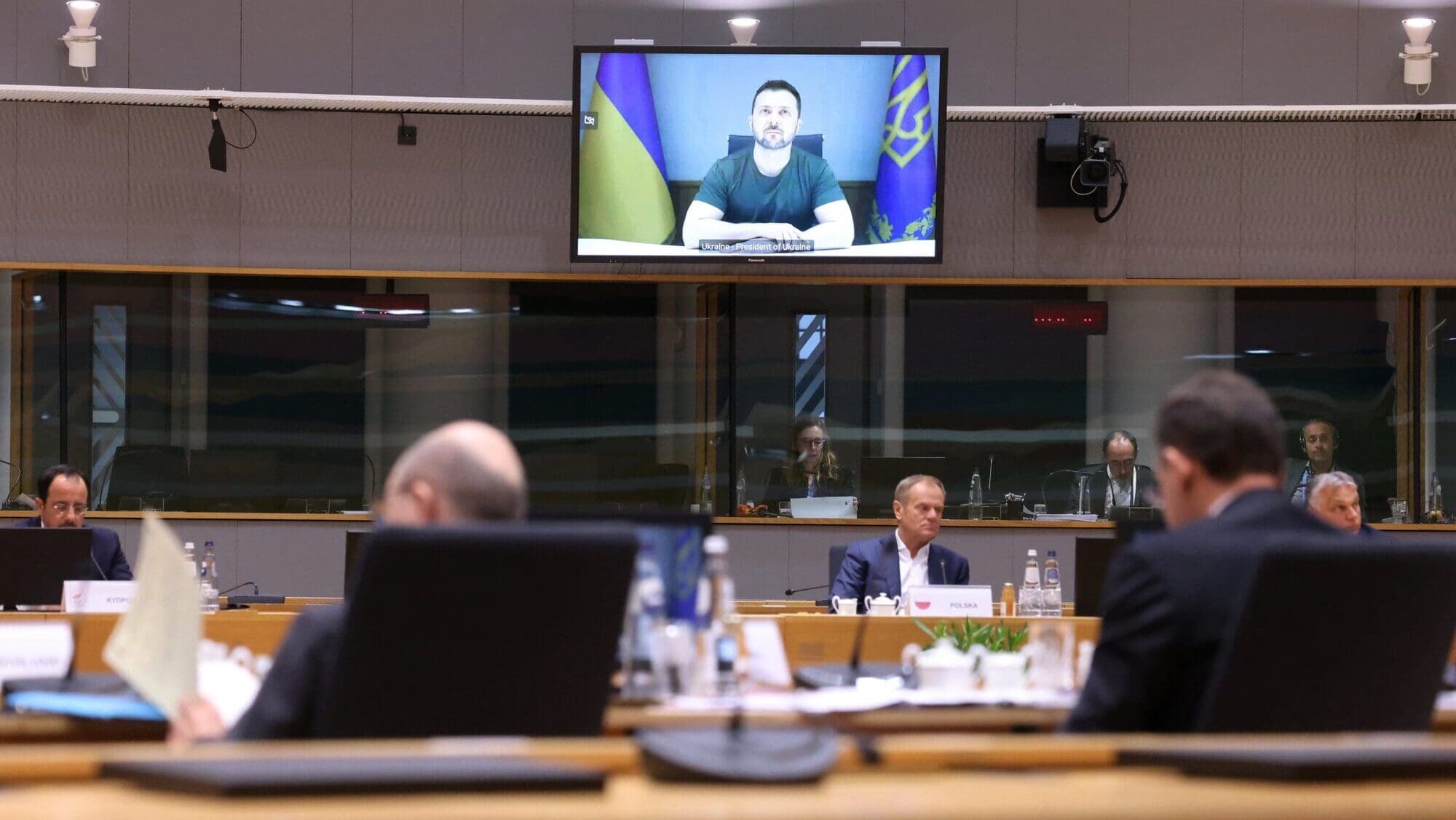
Ukrainian President Volodymyr Zelensky addresses the European Council in April, 2024.
Photo: © European Union
The European Council—comprising representatives of the 27 governments of the EU member states—is set to sign a long-term security agreement with Ukraine on Thursday, June 27th, during President Zelensky’s visit to Brussels on day one of the Council’s two-day summit.
The pact aims to ‘lock in’ the current flow of EU military assistance and other types of aid for Ukraine for the foreseeable future. It therefore guarantees that the West remains committed to Kyiv’s war efforts.
The agreement is also meant to complement the 17 similar bilateral agreements Kyiv previously signed with individual Western countries, and more are expected in the coming months.
The draft document does not specify the exact quantity of future EU military assistance, but it does mention a €5 billion military-aid-only special fund to be filled later this year. Named the “Ukraine Assistance Fund”, the cash pot will be renewed annually, while “further comparable annual increases could be envisaged until 2027,” based on “the evolving needs” of the Ukrainian Army.
Apart from this recurring military aid package, the agreement commits the EU to support Ukraine for an indefinite period in nine specific defense policy areas, including arms deliveries, defense industry cooperation, military training, and mine removal operations.
Echoing the military aid fund, the document sees the EU’s ongoing training mission (EUMAM) also scaled up in the coming years, “continuously adjusted in terms of numbers and skills, according to combat needs.” So far, EUMAM has contributed to training nearly 60,000 Ukrainian soldiers on EU soil, but its initial two-year mandate would run out in September 2024 without this coming renewal.
There is no joint EU-financed training mission planned to take place on Ukrainian soil yet, but several countries have signaled that they may be interested in joining a possible French training mission within the country’s borders, despite Moscow warning several times that any country sending even support troops would be treated as an active participant in the war.
The pact also has provisions for what to do if Ukraine is subjected to any “future aggression”—it’s unclear whether a further escalation of the current conflict counts—requiring Brussels to consult with Kyiv within 24 hours and “swiftly determine” the next steps to be taken together in line with the agreed commitments.
Finally, the document states that these commitments will remain valid as long “as Ukraine pursues its European path”—meaning its eventual EU accession—and will be reviewed in 10 years at the latest.
